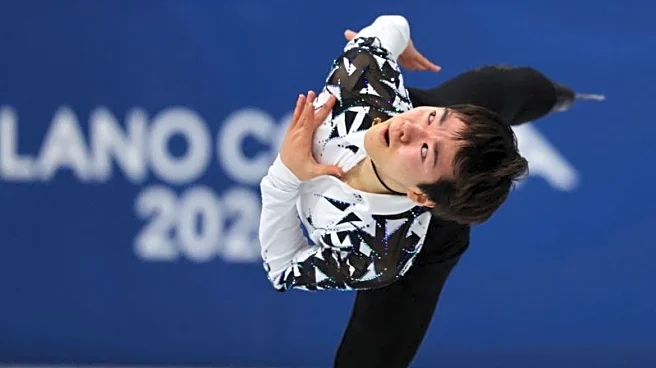What's Happening?
Owen Caissie, a rookie for the Chicago Cubs, has made a significant impact in his first major league season. Acquired from the San Diego Padres in the Yu Darvish trade, Caissie has demonstrated his offensive prowess, driving in four runs and hitting his first MLB home run during a doubleheader against the Milwaukee Brewers. His defensive skills have also improved, as evidenced by his impressive catches in the outfield. Meanwhile, the Chicago White Sox are undergoing a major overhaul of their pitching rotation. General Manager Chris Getz has made several changes, including trading Adrian Houser and promoting Yoendrys Gómez from Triple-A Charlotte. The team is focusing on improving first-pitch strikes and walk percentages, areas where they currently rank poorly in the league.
Why It's Important?
Caissie's emergence as a well-rounded player is crucial for the Cubs as they look to strengthen their roster with young talent. His ability to contribute both offensively and defensively provides the team with greater flexibility and potential for success. For the White Sox, the rotation changes are part of a broader strategy to enhance their pitching depth and performance. By addressing weaknesses in their pitching statistics, the team aims to become more competitive in the league. These developments are significant for both teams as they navigate the challenges of the MLB season and strive for better standings.
What's Next?
The Cubs will embark on a West Coast trip, facing teams like the Los Angeles Angels and San Francisco Giants, where Caissie will have further opportunities to showcase his skills. The White Sox will host the Minnesota Twins and Kansas City Royals, providing a platform for their revamped rotation to prove its effectiveness. Both teams will continue to assess their strategies and make adjustments as needed to improve their performance and standings in the league.
Beyond the Headlines
The Cubs' investment in Caissie highlights the importance of developing young talent within the organization, which could lead to long-term benefits and stability. For the White Sox, the focus on pitching improvements underscores the critical role of analytics in modern baseball, as teams increasingly rely on data to inform their decisions and strategies.










